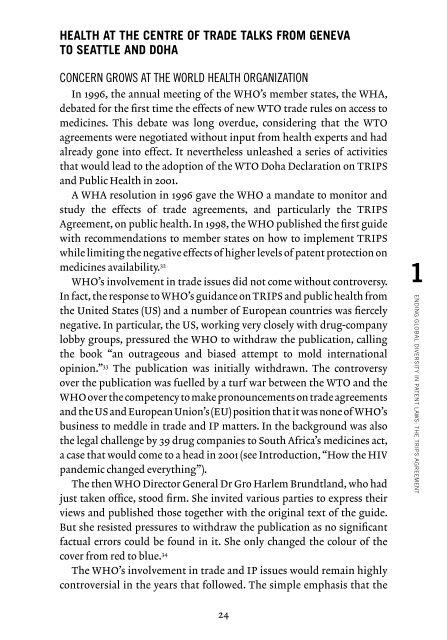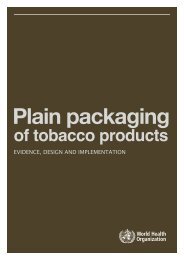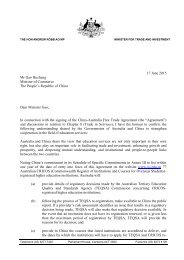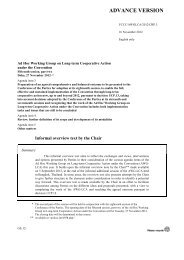PRIVATE PATENTS AND PUBLIC HEALTH
private-patents-and-public-health
private-patents-and-public-health
You also want an ePaper? Increase the reach of your titles
YUMPU automatically turns print PDFs into web optimized ePapers that Google loves.
<strong>HEALTH</strong> AT THE CENTRE OF TRADE TALKS FROM GENEVA<br />
TO SEATTLE <strong>AND</strong> DOHA<br />
CONCERN GROWS AT THE WORLD <strong>HEALTH</strong> ORGANIZATION<br />
In 1996, the annual meeting of the WHO’s member states, the WHA,<br />
debated for the first time the effects of new WTO trade rules on access to<br />
medicines. This debate was long overdue, considering that the WTO<br />
agreements were negotiated without input from health experts and had<br />
already gone into effect. It nevertheless unleashed a series of activities<br />
that would lead to the adoption of the WTO Doha Declaration on TRIPS<br />
and Public Health in 2001.<br />
A WHA resolution in 1996 gave the WHO a mandate to monitor and<br />
study the effects of trade agreements, and particularly the TRIPS<br />
Agreement, on public health. In 1998, the WHO published the first guide<br />
with recommendations to member states on how to implement TRIPS<br />
while limiting the negative effects of higher levels of patent protection on<br />
medicines availability. 32<br />
WHO’s involvement in trade issues did not come without controversy.<br />
In fact, the response to WHO’s guidance on TRIPS and public health from<br />
the United States (US) and a number of European countries was fiercely<br />
negative. In particular, the US, working very closely with drug-company<br />
lobby groups, pressured the WHO to withdraw the publication, calling<br />
the book “an outrageous and biased attempt to mold international<br />
opinion.” 33 The publication was initially withdrawn. The controversy<br />
over the publication was fuelled by a turf war between the WTO and the<br />
WHO over the competency to make pronouncements on trade agreements<br />
and the US and European Union’s (EU) position that it was none of WHO’s<br />
business to meddle in trade and IP matters. In the background was also<br />
the legal challenge by 39 drug companies to South Africa’s medicines act,<br />
a case that would come to a head in 2001 (see Introduction, “How the HIV<br />
pandemic changed everything”).<br />
The then WHO Director General Dr Gro Harlem Brundtland, who had<br />
just taken office, stood firm. She invited various parties to express their<br />
views and published those together with the original text of the guide.<br />
But she resisted pressures to withdraw the publication as no significant<br />
factual errors could be found in it. She only changed the colour of the<br />
cover from red to blue. 34<br />
The WHO’s involvement in trade and IP issues would remain highly<br />
controversial in the years that followed. The simple emphasis that the<br />
1<br />
ENDING GLOBAL DIVERSITY IN PATENT LAWS: THE TRIPS AGREEMENT<br />
24






